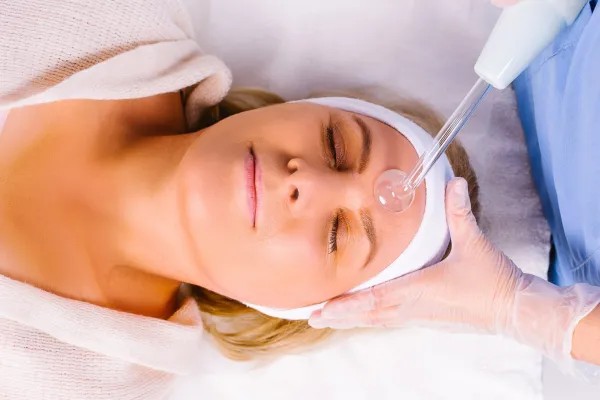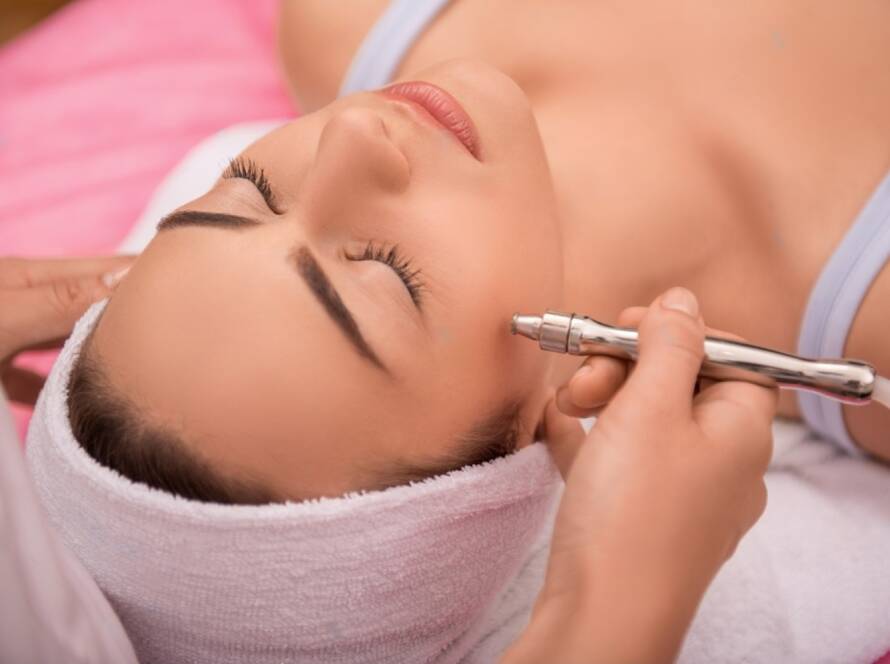Have you noticed how frequently the term Hyaluronic acid (HA) appears when looking at skincare items? Hyaluronic acid is a potent humectant that can take the beauty market to the forefront, whether it’s hyaluronic serum or moisturizers, supplements, sheet masks, night creams, or even products for the lips.
So, what exactly is hyaluronic acid? What are the advantages of this ingredient for skincare, and why is it recommended by the majority of, if not all, dermatologists and cosmetic doctors?
We’ll attempt to unravel the myths surrounding hyaluronic acid and the excellent methods of energetically utilizing this potent ingredient.
What is Hyaluronic Acid?
Hyaluronic acid isn’t your regular ingredient for skin care. It is a humectant that holds water and can hold over 0-fold its mass in water. It is found naturally throughout your body, such as the eyes and skin, and synovial fluid is found in joints.
Laboratories also produce hyaluronic acid (HA) used in the beauty and skincare industries. Based on the source, synthesized HA is classified as non-animal or animal produced.
However, HA is typically derived from a fermentation process called bio-fermentation of Streptococcus bacteria.
Unfortunately, your body’s production of Hyaluronic acid and other essential ingredients (along with collagen and elastin) decreases with age.
The decrease in hyaluronic acid levels within the body can cause a boost in the volume, hydration, and plumpness of the skin, leading to wrinkles, fine wrinkles, and dryness.
External environmental factors like smoking cigarettes and air pollution increase the rate of this process.
What Exactly Is Hyaluronic Acid’s Function?
In terms of water hydration, hyaluronic acids are the most effective. This strong humectant or moisture-binding chemical can store more than 1,000 times the weight of water.
The high negative charge levels in hyaluronic acids allow it to suck up large quantities of liquid and grow as much as 0 times its volume creating a loosely connected hydrated network.
This is why hyaluronic is a filler for space and lubricant and an osmotic buffer in the extracellular matrix.
Due to their excellent ability to hold in water, the cells of HA are a highly effective method of moisturizing skin cells and benefit from keeping moisture. In addition, by increasing the water material within the skin’s tissues, HA helps to plump the skin and lessen the appearance of wrinkles and fine lines.
In addition to the anti-ageing benefits, this extremely hydrating chemical is also beneficial for those with acne-prone and oily skin since it offers the required moisture without blocking pores or leading to breakouts.
What are the Benefits of Hyaluronic Acid?
The main benefit of hyaluronic acids is their ability to hold moisture.
To appreciate how crucial humidity is to the skin, you must first realize that dehydrated skin is when the skin’s surface lacks satisfying water, and it can begin to appear dry, rough, and flaky.
It’s not an issue of beauty. Skin that is not properly hydrated can’t maintain a properly functioning skin barrier, making it vulnerable to damage resulting from environmental and external sources.
Hyaluronic acid goes beyond keeping the skin hydrated and prevents trans epidermal water loss. This means it keeps the skin hydrated, ensuring water doesn’t escape from its surface.
Other advantages of Hyaluronic acid are:
- Anti-ageing reduces the appearance of wrinkles and fine lines.
- Containing antioxidants, it protects the skin from damage caused by environmental factors.
- Prevents premature aging
- Improves skin recovery
- Helps to relieve the eczema
- Reduces redness, inflammation or inflammation
- Non-comedogenic, it does not cause acne-prone or excessively oily skin.
The 3 Types of Hyaluronic Acid
Although it can be found in various types, three primary kinds of hyaluronic acids are used in most of the skincare products we utilize today.
Review the ingredients list of any moisturizer, and you’ll find it contains three of the following kinds of hyaluronic acids:
- Hydrolyzed Hyaluronic Acid can be described as a modified version of hyaluronic acid undergoing hydrolysis.
In hydrolysis, the massive hyaluronic acid molecules break down into smaller pieces. The smaller fragments and a lower molecular weight permit gradual absorption into the skin to efficiently supply vital moisture.
- Sodium hyaluronate is the water-soluble salt variant of HA sodium hyaluronate salt. It is well-known for its long-lasting effects because it can penetrate deeper into the skin and has excellent stability.
- The sodium Acetylated Hyaluronate salt of sodium hyaluronate is made by replacing a few hydroxyl groups in the hyaluronic acids with the acetyl group.
This swap of groups enhances bioavailability and stability and results in deeper and lasting absorption into the skin.
How Does Hyaluronic Acid Benefit Different Skin Types?
Since HA naturally occurs within the body, it’s rare for a person to have any reaction to it.
Products that contain more than 4% hyaluronic acid could indeed affect and dry the skin; however, other than that, the adverse effects are not that severe. It is among the most effective and safe ingredients appropriate for various skin types.
👉🏽 Dry Skin
Hyaluronic acid is a good option for dry skin because it increases its ability to retain moisture.
👉🏽 Oily Skin
Low molecular weight hyaluronic acids are especially beneficial for those with oily skin. They can help retain moisture, leaving a slightly dry, non-greasy feel on the skin. They are also non-comedogenic.
👉🏽 Sensitive Skin
Hyaluronic acid is a natural ingredient that can benefit soothe the skin and shield the skin by reducing inflammation.
But those looking to avoid the drying effects that could be caused by high-percentage solutions containing hyaluronic acids should be sure to check the ingredients of their product to confirm that it contains hydrolyzed HYALURONIC acid, less than 4% and smaller than the amount of 6000 Da.
That is what makes it one of the accurate ingredients for sensitive skin.
👉🏽 Mature Skin
Hyaluronic acid is also known to have anti-ageing properties that could benefit those with aging skin and boost the appearance and softness of their skin.
What Is an Excellent Hyaluronic Treatment?
Hyaluronic acid is a vital ingredient in our skin that helps it maintain its appearance and feel youthful and radiant. Utilizing skincare products that contain it can boost the diminishing quantity of this vital ingredient within your skin.
The truth about HA is that it’s safe for all types of skin.
As all skin types differ, it is excellent to consult your doctor regarding the best serum or product to address your skin problems.



